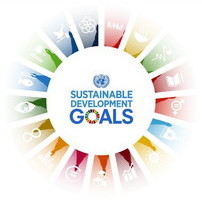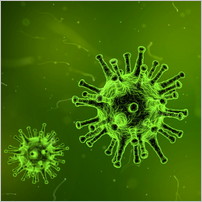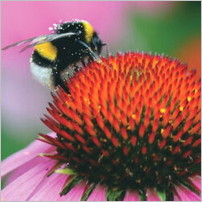 |
Summer Newsletter - Welcome to our third newsletter of 2020, rounding up the latest news and views on our research, training and education programmes. - Here we look back over recent output and outreach including the European Innovation Scoreboard 2020, which finds Europe leading China and the USA, but lagging behind Japan and South Korea. We then hear from a Kosovan ambassador on being a 'living interface between science and policy', and from a UN special adviser on the Secretary General's vision for a digital future. - We also look forward to the first ever Symposium on Migration, Health and Integration, set for late November with partners from Maastricht and Nijmegen. We are planning to hold this event in person – but amid the ‘new normal’ of COVID-19, please check the latest updates from our colleagues at Maastricht University. - As ever our guiding themes are the push and pull of international development: innovation through science and entrepreneurship (#SDG9), and governance through public policy analysis (#SDG16). |
|
 |
Upcoming Events - The first Symposium on Migration, Health and Integration will be held in Maastricht on 26 November 2020, featuring academics, healthcare professionals, policymakers and representatives of civil society. We invite submissions on a range of migrant health-related topics, including reflections from practice as well as academic research (deadline for abstracts: 4 September 2020). The event will also mark the official launch of the 'Health and Migration Collaborative Community' website, a growing resource portal that provides short analytical reviews and other support materials for all interested parties. |
|
 |
Latest News - Bees and other pollinators like butterflies are declining globally, their numbers now in freefall. Climate change, habitat loss, industrialised agriculture, and the use of harmful chemicals form a deadly cocktail that threatens their survival. Yet one fact is finally dawning on policymakers: that the stability of ecosystems and human societies depends on these tiny flying creatures. Clearly, the costs are not just environmental. The need for pollination services is growing five times faster than beekeepers’ ability to keep up, and evidence from numerous studies indicates the staggering scale of our economic reliance on pollinators – worth over US$150 billion. If ‘Beedom’ were a country it would be the 56th richest on earth, larger than the economies of Ghana, Hungary or Kuwait. Read our post by Brendan Joy, a student on our MSc. in Public Policy and Human Development, who just won a place on a social enterprise programme in Ireland. - The European Innovation Scoreboard 2020 shows that the EU’s innovation performance continues to increase at a steady pace and that the EU has kept its innovation lead over the USA. This year’s edition is the first since the withdrawal of the United Kingdom from the European Union, resulting in a small negative effect on the innovation score of the current EU27 compared to last year’s EU28. Sweden is once again the EU innovation leader, and Portugal, for the first time in the history of the EIS, is a strong innovator. For the whole of Europe, Switzerland is the most innovative country. This year’s edition also includes a newcomer with Montenegro. Globally, the EU has a performance lead over China and the USA, but at the same time the EU is further lagging behind Australia, Japan and South Korea. The report was released in Brussels on 23 June 2020. - The COVID-19 pandemic is not only confronting the world with a new and deadly virus – it has also brought ‘science’ back into the lead of policymaking. One can only welcome this dramatic recognition of the value and role of science to society amid the COVID-19 public health challenge. However, the science-based policy advice for measures to combat COVID-19 has also some worrying features. Three are discussed by our former director Luc Soete in the policy brief, Hammer or nudge? Science-based policy advice in the COVID-19 pandemic. |
|
 |
Recent Publications - Are ‘more globalised’ countries suffering higher rates of coronavirus infection? A new cross-country analysis considers the spread of the virus, as well as fatality rates in the context of healthcare capacity. / Post-pandemic, will a strong Europe be the solution (rather than the problem) for the future of the continent? A new working paper sets out a visionary approach based on a strong commitment to sustainable development, improvements in the public sector, joint taxation and sound fiscal behaviour. / And does the migration of higher education students from North Africa to the UK lead to positive, negative or mixed results? A new working paper weighs up the respective impacts of brain drain vs brain gain. See our full April 2020 roundup here. - When it comes to research output in science, technology, engineering and mathematics, what are the roles played by gender and race — and what are the implications for PhD fellows and their supervisors? A new paper finds productivity variations in South Africa of between 10-20%. / For the mining industry in Latin America and the Caribbean, how far is innovation linked to commodity prices? A new study finds that mining firms increase exploration and R&D investments when mineral prices rise, but rely more on suppliers when mineral prices fall. / And when it comes to supporting immigrant students, what policies and practices are most likely to ensure integration and academic success? Given the disproportionate socio-economic challenges faced by immigrant students, a new article recommends education ministries to develop dedicated standalone policy documents. Read our entire May 2020 summary here. - How has the COVID-19 lockdown affected business performance in Ghana? A new paper investigates informal enterprises in two urban centres, and finds that gender gaps are likely to grow in terms of performance. / How do Global Value Chains affect export quality? A new paper looks at export upgrading in the context of economic development, and finds that GVC integration tends to improve export quality. However, it is developed countries that benefit most clearly from ‘forward’ and ‘backward’ linkages. / And do firms see R&D spending as a cost per se or an investment? A new article finds that cost considerations are secondary factors, and that research investments are driven by the expected value of innovations, risk and strategic competence development. See our first impressions from June 2020 here. |
|
 |
Application Deadlines - FINAL CALL for our Master of Science in Public Policy and Human Development (MPP), a double-degree programme from Maastricht University and United Nations University. What can you expect? A concentrated one-year programme; around four hours of class per day; training in small international groups; skills workshops, presentations and debates; personal guidance; and a challenging but rewarding programme! Apply by 15 July 2020 (Deadline for EU/EEA applicants only.) - Take your career to a whole new level through our policy research programme! Join our international community of scholars turning policy topics into research questions, based on qual and quant data analysis. How does it work in practice? Here’s what Mindel van de Laar has to say about ‘tooling up’ and presenting research virtually in the new normal of 2020. Our EPRM course is now available 100% online. Apply by 7 August 2020. - A part-time PhD is not for the faint-hearted, but the truly heroic among us! ‘Fernanda’s PhD thesis combined excellent qual and quant research, based on surveys and interviews carried out in the challenging landscape of Equatorial Guinea.’ – A summary of Fernanda Soares’ work on school partnerships in West Africa, completed while doing a full-time job, moving countries twice, and becoming a mother. Follow Fernanda’s story and apply to our GPAC2 programme by 1 October 2020. |
|
 |
Alumni Activities - Shortly before the lockdown of spring 2020, we caught up with two high-flying alumni: Clovis Freire, who now works at the United Nations Conference on Trade and Development (UNCTAD) in Geneva, and Bernard Nikaj, Ambassador of Kosovo in Brussels. Their video dialogue fed into an article entitled: A living interface between science and policy: PhD alumni share their experiences. - This year Maastricht University will not be organising an Alumni Day, but instead an entirely online UM Alumni Week! Join this largest UM alumni event ever, which will take place from 5-11 September 2020. Have you already graduated or will you graduate soon from Maastricht University? If so, you are more than welcome to enjoy digital lectures, stories, career workshops, sports sessions, meetings with old classmates and former professors, music, and more. |
|
 |
Multimedia - See our modest contribution to the UN’s vision for a digital future, part of a high-level event organised by Chatham House featuring among others UN Special Adviser Fabrizio Hochschild and Marietje Schaake, International Policy Director at the Cyber Policy Center, Stanford University. - Also check our latest Mygration Stories, where Nava Hinrichs speaks of ‘grit and gratitude’ from a family steeped in migration. Then Ronald Skeldon describes how his PhD was ‘as much adventure as research’, travelling overland from Canada to Peru. - We also hear from course directors Julieta Marotta and Mindel van de Laar about the swift move to online teaching, including a focus on well-being and personal passion. - Until next time, in early October, please check our social media accounts on Facebook, LinkedIn, Twitter and YouTube – where you can already see our updated specialisation video on the Governance of Innovation. You can also stay up-to-date on all our major publications via our monthly ‘First Impressions’ roundup. |
|
- ABOUT US
- RESEARCH
- EDUCATION
- The Graduate School
- PhD Programme
- MSc Programmes
- Capacity Development
- News
- Design and Evaluation of Public Policies (DEPP)
- Design and Evaluation of Innovation Policies (DEIP)
- Evidence-Based Policy Research Methods (EPRM)
- Migration Management Diploma Programme (MMDP)
- Moving the Migration Policy Agenda Forward (MMPAF)
- Online Courses
- Short Courses (Masters)
- Tailor-made programmes
- UNU-MERIT, ITU Academy Training Centre
- Alumni
- Academic Funding
- NEWS
- EVENTS
- PUBLICATIONS
- LIBRARY





